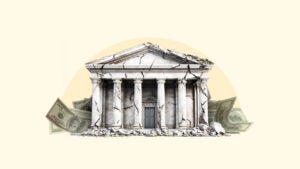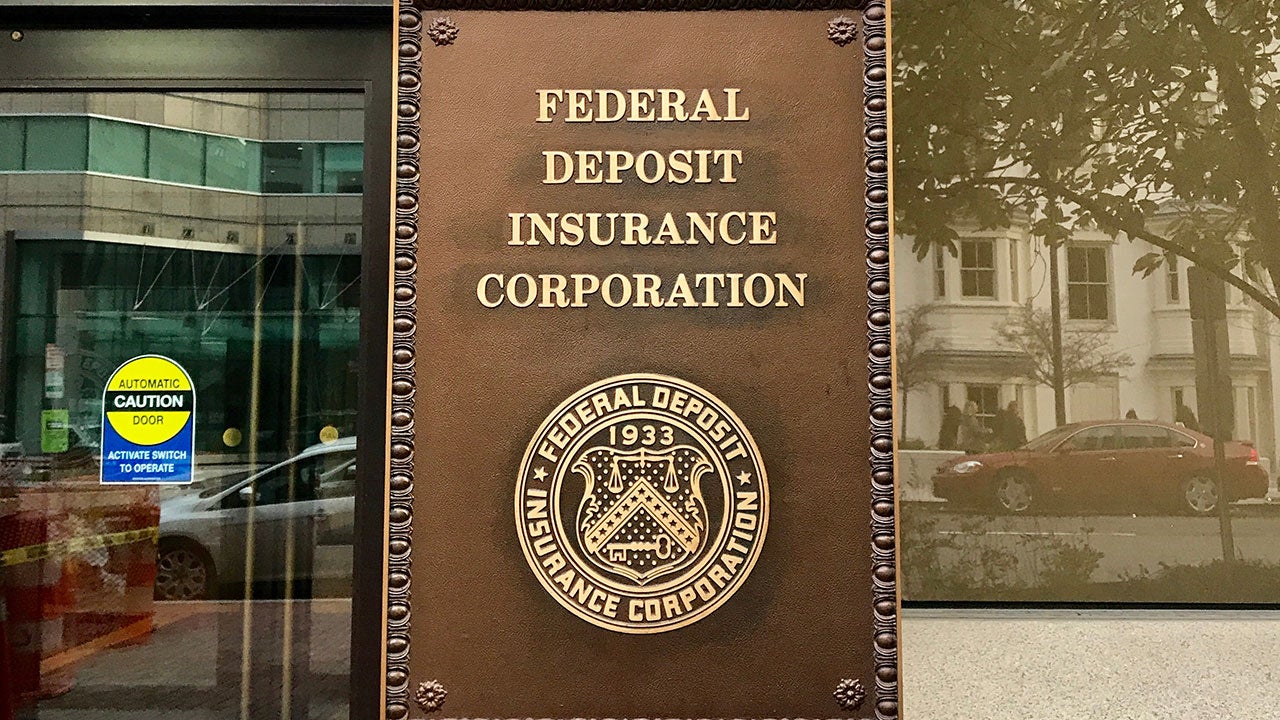The Silicon Valley Bank collapse: What you need to know

First Citizens Bank purchased much of Silicon Valley Bridge Bank on Sunday, March 26. The bridge bank had been temporarily installed by the FDIC following the failure of Silicon Valley Bank. All 17 former SVB branches have been converted to First Citizens Bank branches.
The acquisition included about $72 billion of SVB’s assets. Still, about $90 billion of the failed bank’s securities and other assets will remain in the FDIC’s receivership.
Those who had holdings in SVB that exceed the Federal Deposit Insurance Corp. (FDIC) limit will still have access to the entire amount they deposited, per an announcement made on March 12 by the FDIC, the Federal Reserve and the Treasury Department.
The extraordinary decision to protect uninsured deposits was made to help avert further panic that could drive bank runs at other institutions and negatively impact the rest of the U.S. financial system.
Santa Clara, California-based SVB failed on March 10, making it the largest bank to collapse since the 2008 global financial crisis. The tech-focused bank had earlier announced significant losses, having been unsuccessful at raising funds or securing a buyer.
The job of the FDIC is to insure deposits at its member banks in the event they were to fail. Regulators are making an exception in covering both insured and uninsured funds with SVB, though the FDIC’s official policy is to insure up to $250,000 per depositor, per FDIC-insured bank, per ownership category.
New bridge bank created
The FDIC had transferred all deposits and some assets from the failed SVB to the newly formed bridge bank, Silicon Valley Bank, N.A., which the federal agency operates.
Those who had deposit accounts and loans with the failed bank automatically became customers of the new bridge bank. They continued to have access to their funds by way of ATMs, debit cards and writing checks in the same manner they did before the collapse, the FDIC announced.
In a similar fashion, the FDIC also established a bridge bank to handle the accounts of customers of crypto-focused Signature Bank, which was closed by regulators on March 12. The New York-based bank’s collapse was fueled in part by a run on deposits spurred by the failure of SVB two days prior.
When the FDIC sets up a bridge bank, the new entity assumes the assets and liabilities of the collapsed bank until either a buyer is found or the failed bank is liquidated. First Citizens Bank bought Silicon Valley Bridge Bank on March 26.
SVB Financial Group files for bankruptcy
On March 17, SVB Financial Group, the former parent company of the failed Silicon Valley Bank, filed for Chapter 11 bankruptcy protection. In the court-led process, the company’s assets will be liquidated so creditors can be paid back. The company reported having around $2.2 billion of liquidity and $3.3 billion in unsecured debt.
The company said that SVB Capital and SVB Securities — its venture capital arm and an investment bank, respectively — are not part of the filing, and both will continue to operate as usual. SVB Financial Group is not affiliated with Silicon Valley Bridge Bank, N.A., the new financial institution created by the FDIC after the collapse of Silicon Valley Bank.
“The Chapter 11 process will allow SVB Financial Group to preserve value as it evaluates strategic alternatives for its prized businesses and assets, especially SVB Capital and SVB Securities,” said William Kosturos, Chief Restructuring Officer for SVB Financial Group.
What SVB and Signature Bank failures mean for consumers
Negative impacts of a bank failure such as SVB or Signature on customers and investors may include “a decrease in overall account settings, liquidity issues when needing quick access to funds, and potential difficulty transferring funds to other banks depending on withdrawing/transfer limits,” says Mina Tadrus, CEO of Tampa, Florida-based investment management firm Tadrus Capital.
“Additionally, because many hedge fund firms used these banks as their primary banks for operations, any losses could spread into a wide array of businesses in the financial sector and cause instability within institutional banking systems,” Tadrus said.
When banks such as SVB and Signature fail, the effects go beyond those felt by their depositors. Online marketplace Etsy, which used SVB to process payments to some sellers, alerted the sellers in an email it was experiencing delays in processing the payments as a result of the bank’s collapse. Around 2,700 Etsy merchants were affected temporarily in days following the crash.
A venture-backed retailer named Camp had money tied up in SVP, and it emailed its customers to encourage them to make purchases to help the company stay afloat. The toy seller provided the coupon code “BANKRUN” for 40 percent off purchases.
As a result of the SVB and Signature Bank collapses, many consumers and small business owners without direct ties to either failed bank still feel anxiety over the American financial system and overall economy.
On March 13, the first full day of trading after both regional banks collapsed, the exchanges halted trading in several bank stocks due to volatility. Banks affected were First Republic Bank, PacWest Bancorp, Regions Financial and Zions Bancorporation.
Even shares of big banks lost ground in the aftermath of the SVB and Signature collapses, including Wells Fargo, JPMorgan Chase and Citigroup.
Some worried customers of various regional banks nationwide rushed to withdraw their deposits on March 13, The New York Times reported. President Joe Biden sought to reassure Americans in televised remarks the same day. “Americans can rest assured that our banking system is safe — your deposits are safe,” Biden said. “Let me also assure you we will not stop at this; we’ll do whatever is needed.”
Taxpayers won’t have to bail out collapsed banks
Access will be provided to both insured and uninsured deposits at both failed banks, yet no losses will be borne by taxpayers, as the FDIC noted in its announcement and Biden stated in his televised remarks on March 13.
“Instead, the money will come from the fees that banks pay into the Deposit Insurance Fund,” Biden said. This pool of money consists of premiums paid by banks for deposit insurance coverage, which are assessed quarterly.
In her March 16 testimony ahead of a Senate Finance Committee hearing, Treasury Secretary Janet Yellen also said that the funds to cover deposits at the two failed banks came from fees imposed on banks. “Importantly, no taxpayer money is being used or put at risk with this action,” Yellen said.
The Fed and the Treasury said in their March 12 announcement that emergency actions to cover insured and uninsured deposits at the two failed banks were aimed at “strengthening public confidence in our banking system.” Ensuring consumers and small businesses continue to have access to their deposits and credit helps promote “strong and sustainable economic growth,” the statement read.
Silicon Valley Bank history
SVB was founded by two former Bank of America managers in 1983 and began providing financial services to startup technology companies in Silicon Valley. It first became publicly traded in 1987.
The startup-focused lender had around $209 billion in assets and $175 billion in deposits as of Dec. 31, 2022, according to the FDIC. Customers had attempted to withdraw $42 billion by the time the bank closed for business the evening before federal regulators shut it down.
The bank had become flush with cash during the COVID-19 pandemic, and it invested a significant amount in Treasury bonds. These bonds lost a good deal of their value due to the Fed’s interest rate hikes that started in February 2022. This, combined with depositors rushing to withdraw their money, forced the bank to sell its assets at a big loss to handle all of the withdrawals.
“As clients withdrew money, the bank needed to sell assets to provide the necessary cash,” says Arthur Weissman, co-founder of Miami-based financial services firm Industry FinTech. “But, in a rising interest rate environment, a bank holding bonds and asset-backed securities will likely realize a loss having to sell those assets.”
SVB was the 16th largest bank in the United States at the time it collapsed. It’s now one of the biggest bank failures in U.S. history, second only to the 2008 failure of Washington Mutual.
— Bankrate’s René Bennett contributed to an update of this story.
Why we ask for feedback Your feedback helps us improve our content and services. It takes less than a minute to complete.
Your responses are anonymous and will only be used for improving our website.









